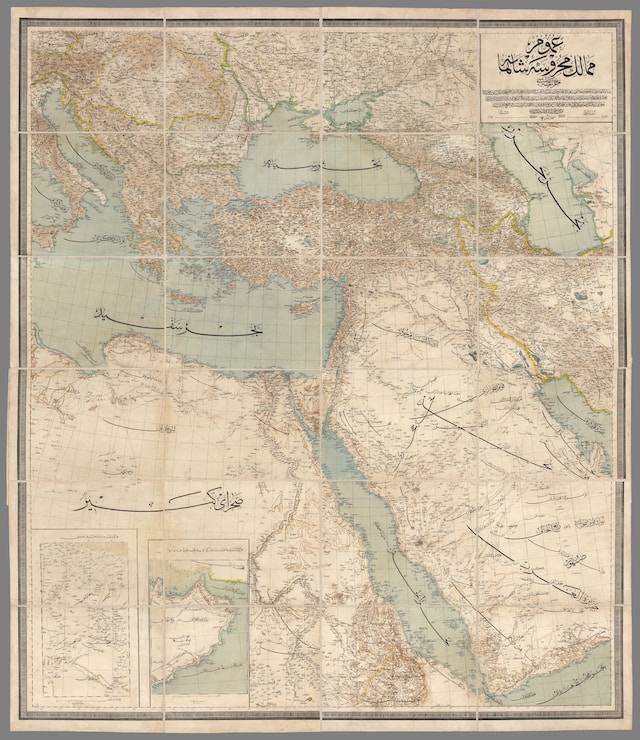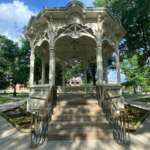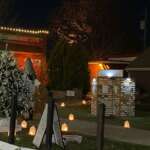A Closer Look at Middle East
Middle East Flag

Middle East Capital Name
The capitals of the countries in the Middle East are:
- Saudi Arabia: Riyadh
- Iran: Tehran
- Iraq: Baghdad
- Kuwait: Kuwait City
- United Arab Emirates: Abu Dhabi
- Qatar: Doha
- Oman: Muscat
- Bahrain: Manama
- Yemen: Sana'a
- Lebanon: Beirut
Middle East Neighbours
 Bahrain
Bahrain Iran
Iran Iraq
Iraq Jordan
Jordan Kuwait
Kuwait Lebanon
Lebanon Oman
Oman Qatar
Qatar Saudi Arabia
Saudi Arabia State of Israel
State of Israel Syria
Syria United Arab Emirates
United Arab Emirates Yemen
Yemen
Exploring Middle East
The Enigmatic Middle East: A Cultural, Historical, and Geographical Overview
The Middle East is a region that has captured the imagination of people for centuries. Located at the crossroads of Asia, Africa, and Europe, it is a land steeped in history, culture, and diversity. The name "Middle East" itself is a Western invention, reflecting the region's location between the "Near East" and the "Far East." In this article, we will delve into the fascinating world of the Middle East, exploring its geography, history, government, economy, culture, and more.
Key Takeaways:
- The Middle East is a region located at the crossroads of Asia, Africa, and Europe.
- The name "Middle East" is a Western invention.
- The region is known for its rich history, diverse culture, and strategic location.
Geography:
The Middle East covers an area of approximately 6 million square kilometers and is home to over 300 million people. It is a diverse region with a variety of physical features, including deserts, mountains, rivers, and coastlines. The region is also rich in natural resources such as oil, natural gas, and minerals. The climate in the Middle East varies from arid and semi-arid in the desert regions to Mediterranean in the coastal areas. The weather patterns can be extreme, with scorching summers and cold winters.
Origin and History:
The Middle East has a long and complex history that dates back to ancient civilizations such as Mesopotamia, Egypt, and Persia. These civilizations were responsible for many advancements in science, mathematics, art, and literature. In modern times, the region has been shaped by the rise and fall of empires, colonization, and political conflicts. The Middle East is also considered the birthplace of three major world religions: Judaism, Christianity, and Islam.
Government and Politics:
The political landscape of the Middle East is diverse, with each country having its own unique system of government. Some countries have monarchies, while others have republics or dictatorships. The region is also divided into various administrative divisions, such as provinces, states, or governorates. Foreign relations play a crucial role in the Middle East, with many countries having complex relationships with their neighbors and other global powers.
Commerce and Economy:
The Middle East is a major player in the global economy, thanks to its vast reserves of oil and natural gas. However, the region's economy is not solely reliant on these resources. The Middle East also has a thriving agricultural sector, producing crops such as wheat, rice, and cotton. Trade relations within the region and with other countries play a significant role in the economy. The currency used in most Middle Eastern countries is the local currency, but some countries use the US dollar as their official currency.
Demographics:
The population of the Middle East is predominantly Arab, with other ethnic groups such as Kurds, Persians, Turks, and Armenians also present. The region has a relatively young population, with over half of its inhabitants under the age of 30. This demographic diversity adds to the cultural richness of the region.
Culture:
The Middle East is known for its vibrant culture, which is a blend of ancient traditions and modern influences. Art, music, festivals, traditions, and holidays play a significant role in everyday life. Arabic calligraphy, architecture, and cuisine are just some examples of the region's unique cultural expressions. Hospitality is highly valued in Middle Eastern culture, and visitors are often welcomed with open arms.
Languages and Religion:
Arabic is the most widely spoken language in the Middle East, with regional dialects varying from country to country. Other languages spoken include Turkish, Persian, and Kurdish. The Middle East is also home to three major world religions: Islam, Christianity, and Judaism. These religions have a significant influence on society and daily life in the region.
Education and Healthcare Systems:
The education system in the Middle East varies from country to country, but most countries have made significant strides in improving literacy rates. The region also has a robust healthcare system, with advancements in medical technology and public health initiatives. However, access to quality education and healthcare can vary depending on a country's economic status.
Sports and Recreation:
Sports play a vital role in Middle Eastern culture, with football (soccer) being the most popular sport. Other popular sports include basketball, cricket, and tennis. The region has also produced many successful athletes who have achieved international recognition.
Tourism:
The Middle East is home to some of the world's most iconic tourist attractions, such as the Pyramids of Giza in Egypt, Petra in Jordan, and the ancient city of Persepolis in Iran. The region also boasts beautiful beaches, stunning landscapes, and bustling cities. With improved infrastructure and transportation options, tourism in the Middle East has been steadily increasing in recent years.
Travel Information for Foreign Visitors:
Visitors to the Middle East must be aware of visa requirements before planning their trip. Some countries allow visa-free entry for certain nationalities, while others require a visa application process. It is also essential to research health and safety precautions, as some areas may have travel advisories due to political instability or natural disasters. Local customs and etiquette should also be respected, such as dressing modestly and avoiding public displays of affection. The local currency is widely accepted, but major credit cards are also accepted in most places.
Quotes:
"The Middle East is a place where history is being made every day." - John Kerry
"The Middle East is a symbol of endurance, strength, and diversity." - Reem Acra
"The Middle East is a complex tapestry of cultures, religions, and traditions." - Queen Rania of Jordan
Summary and Future Developments:
The Middle East is a region that continues to evolve and surprise the world with its rich history, diverse culture, and strategic importance. Despite its challenges, the region has made significant progress in various areas such as education, healthcare, and tourism. As the world becomes more interconnected, the Middle East's role in global affairs will continue to grow, making it a fascinating and dynamic place to explore.
Middle East Highest Point Name
The highest point in the Middle East is the summit of Mount Damavand in Iran, at 5,610 meters (18,410 feet) above sea level.
Middle East Official Languages
The official languages of countries in the Middle East vary, depending on the country. Some examples include:
- Arabic: Egypt, Iraq, Jordan, Kuwait, Lebanon, Libya, Palestinian Territories, Syria, Bahrain, Oman, Qatar, Saudi Arabia, United Arab Emirates.
- Azerbaijani: Azerbaijan
- Hebrew: Israel
- Kurdish: Iraq, Iran
- Persian (Farsi): Iran
- Turkish: Cyprus, Turkey
- English: Kuwait, Qatar, United Arab Emirates
- French: Lebanon
Middle East Ethnic Groups
The ethnic groups of the Middle East vary greatly depending on the region. In the Arabian Peninsula, some of the largest groups include Arabs, Kurds, Balochs, Persians, and other ethnic groups such as Turkmens, Circassians, and Armenians. In Egypt, the most populous ethnic group is the native Egyptian group, but other ethnic groups include Greeks, Italians, Nubians, Turks, Bedouin, and Copts. In Iran, the largest ethnic group is Persian, but many other ethnic groups including Kurds, Turkmens, Lurs, Balochs, Azeris, Arabs, and Armenians also live in the country. Iraq is home to Arabs, Kurds, Turkmens, Shabaks, Ezidis, Mandeans, Assyrians, Circassians, and others. Syrians comprise the majority of the population in Syria, but there are also significant numbers of Kurds, Armenians, and other ethnic minorities. In Turkey, the majority of the population is Turkish, but there are ethnic minorities such as Kurds, Armenians, Assyrians, Balkars, Laz, and Aegean Turks. In Israel, the majority population is Jewish, but there are also large Arab minorities as well as smaller minorities such as Circassians and Druze. Lastly, in Lebanon, the two largest ethnic groups are Arab and Armenian, but there are also smaller minorities including Kurds, Assyrians, and Greeks.
Middle East Religions
In the Middle East, much of the population adhere to Islam, a monotheistic religion. Shia and Sunni are the two dominant branches of Islam and are present in many Middle Eastern countries. Judaism is also quite prevalent in the Middle East, particularly in Israel. Besides these main three Abrahamic religions, there is a sizable population of Eastern Orthodox Christians, mainly in countries like Syria, Lebanon, and Jordan. The Yazidi practice, derived from ancient Mesopotamian religion, is practiced in some parts of Iraq and Syria. Iranian cultures have their own distinct faith, known as Zoroastrianism, which was once the main religion of the Persian Empire. Smaller, diverse religions and belief systems, such as Bahaism, Druzism, and Yarsanism, can also be found in Middle Eastern countries.
Middle East Total Area
The total area of the Middle East region is around 5.5 million square miles.
Middle East Land Area
The following is a list of Middle East countries and their respective land area (km²):
- Iraq: 438,317
- Saudi Arabia: 2,149,690
- Iran: 1,648,195
- Turkey: 783,562
- Egypt: 1,001,450
- Yemen: 527,970
- Syria: 185,180
- United Arab Emirates: 83,600
- Israel: 22,145
- Jordan: 92,300
- Oman: 309,500
- Kuwait: 17,820
- Lebanon: 10,452
- Bahrain: 665
Middle East Water Area
The Middle East region includes numerous countries and territories with rich biodiversity and aquatic life. The exact area of total water in the Middle East depends on which countries are being considered. When taking into account countries such as Egypt, Iran, Iraq, Israel, Jordan, Kuwait, Oman, Saudi Arabia, Syria, Turkey, United Arab Emirates, and Yemen, the total water area of the Middle East region averages approximately 6% of the total land area.
Middle East Total Population
The exact answer to this question varies significantly as population statistics are constantly in flux. Currently, some of the most populous countries in the Middle East include
- Egypt: 99.6 million
- Iran: 83.2 million
- Turkey: 81.6 million
- Saudi Arabia: 33.4 million
- Iraq: 40.8 million
- United Arab Emirates: 9.8 million
Middle East Currency Name
The most common currencies used in the Middle East are the United Arab Emirates dirham (AED), the Saudi riyal (SAR), the Bahraini dinar (BHD), the Kuwaiti dinar (KWD) and the Omani rial (OMR).
Middle East Currency Code
The currency codes for Middle Eastern countries vary depending on the country, but most examples include:
- Israel - ILS
- Saudi Arabia - SAR
- United Arab Emirates - AED
- Oman - OMR
- Kuwait - KWD
- Qatar - QAR
- Bahrain - BHD
- Jordan - JOD
- Iran - IRR
- Lebanon - LBP
- Yemen - YER
Middle East Currency Symbol
The currency symbols for the countries in the Middle East vary depending on the country. Some of the most common currency symbols are:
- Saudi Riyal (SAR)
- Kuwaiti Dinar (KWD)
- Bahraini Dinar (BHD)
- Omani Rial (OMR)
- Jordanian Dinar (JOD)
- United Arab Emirates Dirham (AED)
Middle East Calling Code
The calling code for a country in the Middle East varies depending on the country.For example, the calling code for the United Arab Emirates (UAE) is +971, while Egypt’s is +20. For a complete list, please refer to the List of country calling codes
How to Say "Middle East" In Different Languages?
- Dari
- میانهرو (dv-AF)
- Pashto
- منځنۍ وسط (pa-AF)
- Azerbaijani
- Orta Şərq (az-AZ)
- French
- Moyen-Orient (fr-FR)
- Egyptian Arabic
- الشرق الأوسط (ar-EG)
- Bengali
- মধ্য পূর্ব (bn-BD)
- Persian
- خاورمیانه (fa-IR)
- Farsi
- خاورمیانه (fa-IR)
- Arabic
- الشرق الأوسط (ar-IQ)
- Hebrew
- המזרח התיכון (he-IL)
- Yiddish
- מיטל מזרח (yi-IL)
- Kuran Arabic
- الشرق الأوسط (ar-JO)
- Lebanese Arabic
- الشرق الأوسط (ar-LB)
- Berber
- Tamurt n Xiang (tzm-Arab)
- Kuran Arabic
- الشرق الأوسط (ar-SA)
- Western Arabic
- الشرق الأوسط (ar-SY)
- Kurdish
- راوستی میانهیه (ku-TR)
- Turkish
- Orta Doğu (tr-TR)
- Urdu
- مشرق میں (ur-PK)
Middle East Popular Holidays
- Hijri New Year
- 1 Muharram
- Muharram
- 1 Muharram (29 Muharram)
- Day of Ashura
- 10 Muharram
- Purim (Esther Fast)
- 10 Adar (11 Adar)
- Day of Arafah (Hajj)
- 9 Dhu Al-Hijjah
- Laylat al-Bara'ah (Night of Innocence)
- 17 Dhu Al-Hijjah
- Id al-Nahar (Sacrifice Day)
- 10 Dhu Al-Hijjah
- Hajj (Pilgrimage to Makkah)
- 1 Dhu Al-Hijjah (10 Dhu Al-Hijjah)
- Hijra (Islamic New Year)
- 1 Muharram
- Birth of the Prophet Yahya
- 21 Rajab
- Eid al-Maulud
- 20 Rabi' al-Awwal
- Lailat al Miraj
- 27 Rajab
- Day of Arafah
- 9 Dhu Al-Hijjah
- New Year’s Day
- 1 January
- Coptic Christmas
- 7 January
- World Cancer Day
- 4 February
- Prophet Muhammad's Birthday
- 12 February
- International Women's Day
- 8 March
- Maghrib Holiday
- 19 March
- Independence Day (Tunisia)
- 20 March
- National Day Tunisia
- 20 March
- Mother's Day
- 21 March
- Annunciation of the Blessed Virgin Mary
- 25 March
- Independence Day (Iran)
- 1 April
- Palm Sunday
- 5 April
- Annunciation Day
- 6 April
- Christian Good Friday
- 10 April
- Christian Easter
- 12 April
- Ramadan
- 13 April (12 May)
- Earth Day
- 22 April
- Shemoukh Sinai Liberation Day
- 25 April
- Sinai Liberation Day
- 25 April
- Labour Day
- 1 May
- Al Isra & Mi'raj (Ascension)
- 11 May
- Ascension of Jesus Christ
- 13 May
- Liberation Day (Yemen)
- 22 May
- Independence Day (Jordan)
- 25 May
- Laylat al-Qadr
- 6 June
- Eid al-Fitr
- 7 June (15 June)
- Independence Day (Kuwait)
- 19 June
- Fathers Day
- 21 June
- Eid al-Adha
- 10 July (13 July)
- Revolution Day (Egypt)
- 23 July
- Defeat of Satan Day
- 4 August
- Elul 1 (Jewish)
- 9 August
- Independence Day (Bahrain)
- 15 August
- Assumption of Mary
- 15 August
- Tu B’Av (Jewish)
- 15 August
- Transfiguration Day
- 19 August
- Elul 29 (Jewish)
- 29 August
- Independence Day (Qatar)
- 3 September
- Victory Day (Syria)
- 8 September
- Rosh Hashanah (Jewish)
- 18 September (20 September)
- Frontiers Day (Kingdom ofSaudi Arabia)
- 23 September
- Yom Kippur (Jewish)
- 27 September
- Independence Day (Iraq)
- 3 October
- Erev Shemini Atzeret /Simchat Torah (Jewish)
- 7 October (8 October)
- Jerusalem Day
- 9 October
- Sukkot (Jewish)
- 14 October (20 October)
- Palestinian National Day
- 15 October
- United Nations Day
- 24 October
- Presidential Election Day
- 25 October
- Feast of the Sacrifice
- 31 October
- All Saints' Day (Christian)
- 1 November
- Independence Day (Oman)
- 18 November
- Grand Mosque Seizure
- 20 November
- Independence Day (Lebanon)
- 22 November
- Prayers Day Bahrain
- 22 November
- Independence Day (United Arab Emirates)
- 2 December
- UAE National Day
- 2 December
- Bahrain National Day
- 16 December
- Arabic Language Day
- 18 December
- Christmas Eve
- 24 December







